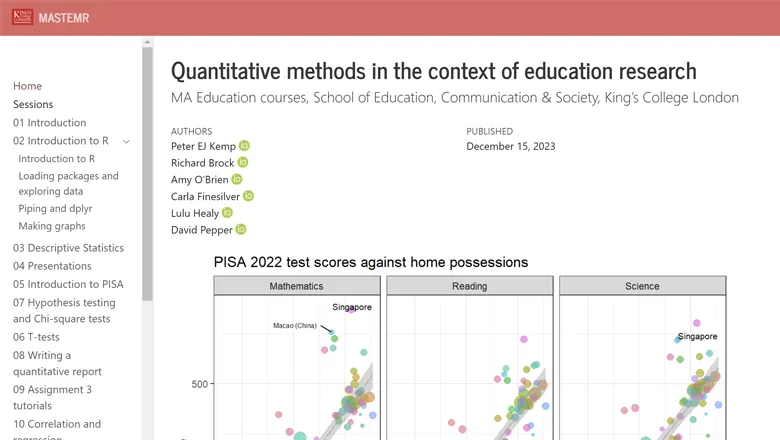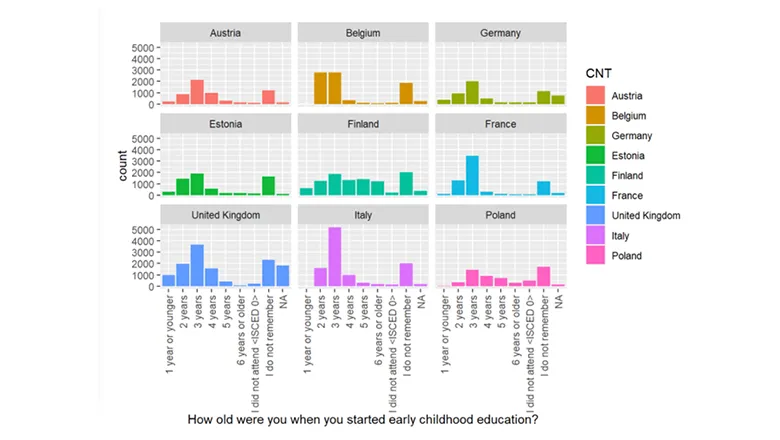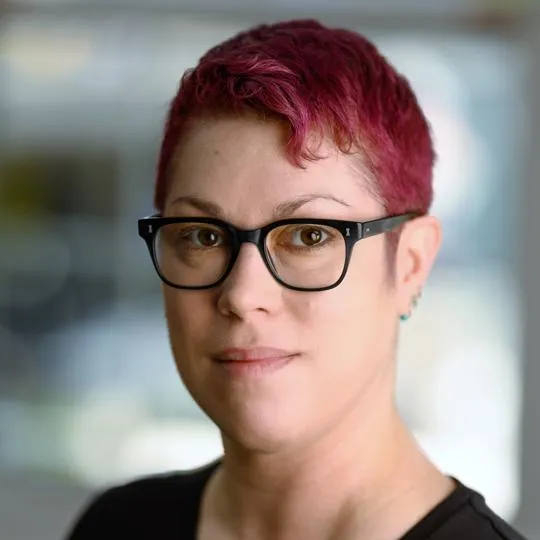Our MA students may well be the first researchers to carry out a particular test on the new data set, or to produce a graph of some subset of the data. This means that their final assignment, which is a self-directed research project based on the 2022 dataset, may be an original piece of research.
Dr Richard Brock, Senior Lecturer in Science Education
21 December 2023
Uncovering new educational trends as students use real-world data to learn about statistics
Brand new data from an international survey of teenagers is being used by students studying quantitative methods in educational research in the School of Education, Communication & Society.

Students learning about quantitative methods in educational research are using the latest real-world data on schooling which means they could be the first to discover new trends in education across the world.
Teaching resources for the module, run by the School of Education, Communication & Society (ECS), have been updated within just a couple of weeks of new data being released from the Programme for International Student Assessment (PISA) survey.
This means the postgraduates taking the module are carrying out novel analyses of the information, which was gathered from surveys with around 690,000 15-year-olds in 81 countries.
The academics leading the module were keen to ensure that students see the ‘messier aspects’ of real-world data, rather than invented, simplified data, so have been using results from the 2018 PISA survey published by the Organisation for Economic Co-operation and Development (OECD).
The team chose to use PISA data for their module as they wanted to give students something to work on that was interesting and relevant to them.
In the past the PISA survey has been influential internationally, in particular the controversial ranking of countries by their performance in tests, which has led to changes in educational policy in a several countries.

On 5 December the OECD published a new set of PISA results, and within weeks the academics updated their teaching resources to use the new data, making them among the first to be created using the new information.
The Quantitative Methods in Educational Research module is taught using an open-source software package, R, that allows students to analyse and produce graphical representations of data. To support the students, the team have written an online book that is also publicly available.
The book, authored by Dr Peter Kemp, Dr Brock, Amy O’Brien, Dr Carla Finesilver, Professor Lulu Healy and Dr David Pepper means that, alongside traditional seminars, students can work on activities, with answers, in their own time.
The work on the quantitative module was funded by a gift from Wipro, an Indian multinational corporation that provides information technology services, who sponsor scholarships on the MA in STEM Education.
In the 2022 PISA surveys, teenagers were asked about their schooling and completed tests in reading, maths, and science. There were also questions around wellbeing, bullying and career aspirations, and their teachers answered questions about their school environment. Dr Brock said already the new data are revealing some interesting trends, such as around mobile phone use in schools, that he and the team are hoping to investigate further along with research around STEM education and gender equity.
Dr Kemp and Dr Brock also offer teaching sessions for colleagues in ECS around using quantitative methods in educational research and will be launching a course teaching statistics using the R software package to doctoral students in SPSS in 2024.






